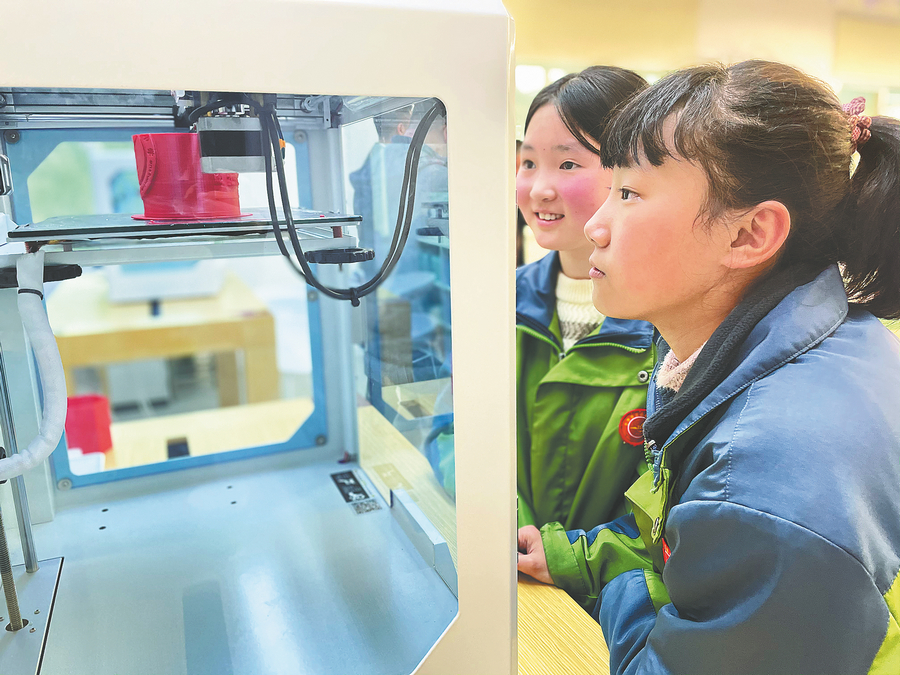Homemade mold 3D printers gain popularity overseas


YINCHUAN — With the arrival of spring producing busier days, a spacious workshop at Kocel Intelligent Machinery Ltd has workers conducting final adjustments and assembly of mold 3D printers for upcoming delivery to overseas clients.
Located in Yinchuan, Northwest China's Ningxia Hui autonomous region, Kocel is gaining increasing recognition abroad for its self-developed mold 3D printers, which have maintained a global market share of around 60 percent for four consecutive years.
"The printers ordered by our Italian clients arrived before this year's Spring Festival and we took our technical service team to their location for installation and debugging of the new machines during the Spring Festival holiday. Then, we traveled to Austria to upgrade both software and hardware for our existing clients, while we also discussed some new projects," said Bai Ming, vice-general manager of Kocel.
The situation was quite different for Kocel over a decade ago. Back then, the company invested heavily in importing 3D printing equipment from overseas to improve a challenging work environment and low productivity in the traditional casting industry. However, high operational costs hindered widespread use of such equipment, while technical issues had to be resolved by foreign experts.
Facing such challenges, the company decided in 2015 to embark on the localization and industrialization of mold 3D printing technology. After overcoming hurdles related to printing materials, processes, software, equipment and key technologies, Kocel successfully developed the first large-scale, high-efficiency industrial mold 3D printers in China.
"This successful development marked the domestic initiation of the industrial application of such printing," said Zhou Zhijun, R&D director of Kocel, who also noted that the company has since developed more than such printer models.
In the company's smart factory, traditional challenges such as the need for cranes, molds, physical effort and temperature controls have been solved effectively. Workers need to simply touch a button on a control screen for the production box of a 3D printer to automatically print the product based on the model designed in the computer.
"Previously, it took over a month for a new casting to evolve from blueprint stage to finished product. However, mold 3D printing technology is able to cut this process to a week, while also significantly improving the quality and precision of items produced," said Zhou.
The transformation in the casting workshop is a tangible reflection of the new quality productive forces driving the transformation and upgrade of the traditional foundry industry. A total of seven intelligent foundries based on 3D printing technology have been established nationwide, which are able to achieve full digitalization of the casting production process and a production efficiency more than three times that of traditional foundries of the same scale.
"Our goal is to further reduce costs, improve efficiency and make mold 3D printing equipment more accessible and affordable for more foundry enterprises. The R&D team will also continue exploring innovation in new areas such as ceramics, metals, graphites and other printable materials," said Zhou.
Xinhua




































